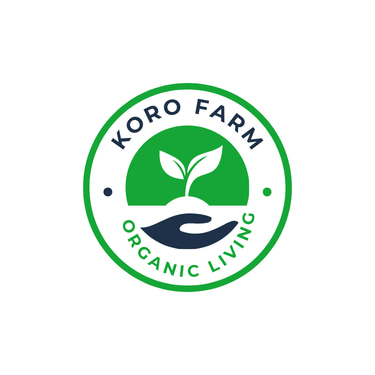The Power of Organic Pesticides: A Natural Way to Protect Your Crops
At Koro Farmstay, we are deeply committed to empowering local communities by promoting organic farming and sustainable agriculture. By providing education and hands-on training in traditional farming techniques, we help restore lost knowledge and foster environmental stewardship. Through organic practices, we aim to create healthier ecosystems, reduce dependence on harmful chemicals, and preserve the biodiversity of local seeds. Our work not only boosts food security but also generates sustainable income for farmers, enhancing the livelihoods of entire communities.
Alfred Okello
12/9/20226 min read


As organic farming continues to grow in popularity, one of the key challenges for farmers is finding safe, effective ways to protect crops from pests without relying on harmful chemicals. Organic pesticides offer a solution that aligns with sustainable agriculture, protecting the health of plants, soil, and the surrounding ecosystem. They are derived from natural substances, making them less toxic to beneficial insects, animals, and humans.
By choosing organic pesticides, farmers and gardeners can control pests while minimizing their environmental impact. Below, we’ll explore some of the most effective organic pesticide options and how they work.
Benefits of Organic Pesticides
Eco-Friendly: Organic pesticides break down quickly in the environment, reducing pollution and avoiding long-term harm to ecosystems.
Non-Toxic to Beneficial Species: These pesticides are less harmful to pollinators like bees, as well as to soil organisms that contribute to plant health.
Improved Soil Health: Because they don't contain synthetic chemicals, organic pesticides help maintain the health of the soil, which is essential for long-term sustainable farming.
Healthier Crops: By avoiding toxic chemicals, organic pesticides ensure that crops are safe for consumption, contributing to overall health.
Common Organic Pesticides
Neem Oil
Extracted from the seeds of the neem tree, neem oil is a powerful organic pesticide that disrupts the life cycle of pests. It works against a wide range of insects, including aphids, beetles, and caterpillars. Neem oil is also a fungicide, protecting plants from diseases such as powdery mildew.
Diatomaceous Earth
This fine powder is made from fossilized algae and is effective against soft-bodied pests like slugs, ants, and fleas. Diatomaceous earth works by dehydrating insects upon contact.
Insecticidal Soap
Insecticidal soap is made from natural plant oils and fatty acids, targeting soft-bodied insects such as aphids, spider mites, and whiteflies. It works by breaking down the insects' outer membrane, causing dehydration.
Garlic Spray
Garlic has natural repellent properties that make it an effective pesticide for many garden pests. Garlic spray can deter aphids, beetles, and caterpillars, while also protecting plants from fungal infections.
Bacillus Thuringiensis (Bt)
Bt is a natural bacterium found in soil that produces toxins harmful to certain insects, particularly caterpillars, mosquitoes, and beetles. It's safe for use around humans, animals, and beneficial insects.
Pyrethrin
Derived from the flowers of the chrysanthemum plant, pyrethrin is an effective pesticide against a wide range of pests including flies, mosquitoes, and moths. However, it should be used with caution as it can also affect beneficial insects.
Companion Planting
This method involves planting certain crops together to naturally repel pests. For example, marigolds deter aphids, while basil planted alongside tomatoes can help repel whiteflies.
Chili Pepper Spray
Chili pepper spray can be used to deter insects like aphids and spider mites. The capsaicin in chili peppers is an irritant to pests, making it an effective and natural deterrent.
Citrus Oil
Citrus oil is a natural repellent for ants and fleas. It works by breaking down the exoskeleton of pests, ultimately killing them.
Beneficial Nematodes
These microscopic organisms can be added to the soil to control pests that live below the surface, such as rootworms and grubs. Beneficial nematodes attack and kill harmful pests without affecting plants or animals.
How to Use Organic Pesticides Effectively
While organic pesticides are safer for the environment, it’s important to use them correctly to avoid damaging plants or harming beneficial insects. Here are a few tips:
Identify the Pest: Always start by correctly identifying the pest causing damage to your crops. This ensures you use the most effective organic pesticide.
Apply at the Right Time: Many organic pesticides are most effective when applied during certain stages of the pest’s life cycle. For example, Bt works best on young caterpillars.
Follow Instructions: Even though these are natural substances, it's important to follow the application instructions to avoid overuse, which can harm plants or beneficial insects.
The Future of Sustainable Farming
At Koro Farmstay, we are committed to promoting sustainable farming practices, which includes the use of organic pesticides. By embracing these natural solutions, we aim to reduce reliance on harmful chemicals and protect the biodiversity of our farm and the surrounding environment. Organic pesticides are a crucial part of our strategy to create a farm that is both productive and environmentally responsible, ensuring that future generations can enjoy healthy food and a thriving ecosystem.
Conclusion
Organic pesticides are a key component of sustainable agriculture. They offer an effective and environmentally friendly way to control pests while protecting the health of the soil, crops, and ecosystems. Whether you’re a small-scale gardener or a large organic farmer, these natural solutions can help you manage pests and maintain the balance of nature.
By supporting projects like Koro Farmstay, you contribute to the growth of organic farming practices and a healthier, more sustainable future.
Want to Learn More? If you’re interested in organic farming, seed preservation, or sustainable agriculture, join us at Koro Farmstay, where we combine education, community outreach, and hands-on farming experience.
Sustainability
Contact us
Sections
info@korofarmstay.life
© 2024. All rights reserved.
subscribe
